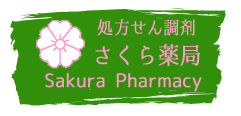Introduction
1)Role of medicines
While we are healthy, we forget the existence of medicines.
But when we suffer from head pain and/or stomach pain, or are injured,
it reminds us of the existence of medicines.
We consider taking medicines when we know that our families and we are
not in good condition. And when we recover from illness and from injury
after taking medicines prescribed by a doctor and/or a pharmacist, we fell
very happy.
As described above, medicines are things to be relied in case of emergency.
2)History of medicines
Many people in the world have been making great efforts to find out medicines.
They tried to use plant roots, tree cortexes, flowers, fruits and minerals,
which were collected in mountains as medicines. And also bones and/or horns
of animals were used.
I would like to introduce you some examples. Datura metel (Tyousenasagao
in Japanese), which flowers are pretty white, includes alkaloid that can
induce numbness of leaves. Mr. Hanaoka, who lived in Tokugawa period, tried
to use it as anesthesia to operate a women suffering from breast cancer
for the first time in the world.
When watching a period drama, we sometimes see that a daughter makes great
effort to buy Korean Ginseng for a sickly mother. Now we know that Korean
Ginseng has activity to improve weakened body. It is sometimes used to
improve weakened body derived from blood cancer. In the States, they have
been doing the research about Korean Ginseng to cure atopic dermatitis,
which is contemporary disease.
Iron is utilized to treat people suffering from anemia through cooking
with an iron pan. Gold is used to cure persons suffering from hardening
of joint caused by rheumatism. Arsenic, which became notorious when poisonous
curried rice happening occurred, was used not only as an agricultural chemical
but also as medicines for a syphilitic person.
Since penicillin was discovered from green fungi grown in bread in England,
we have succeeded in curing many diseases caused by bacteria, which we
had failed to treat such kinds of diseases before. Streptomycin was developed
15 years later since penicillin was discovered (in the middle of World
War II), and this finding could save life of people, as Streptomycin was
very effective to tuberculosis, which was fearful disease because it deprived
of life of many young adults at that time.
A lot of medicines that can prevent growth of bacteria causing diseases
have been developed one after another since the discovery of penicillin.
Japanese researchers highly contributed to explore these types of medicines.
We have named these medicines as antibiotics. You know in 1996 a kind of
bacteria named O-157 causing food poisoning became notorious. If we had
not had antibiotics, this bacterium might have deprived of life of many
people and might have induced big panic.
3)Side effect of medicine
When you know what I am writing here, you may think that medicines always
give us good effect. But unfortunately this is not right. We human beings
are controlled by homeostasis, which is the maintenance system of equilibrium,
or constant conditions, in a biological system by means of automatic mechanisms
that counteract influences tending toward disequilibrium. When we are beyond
this automatic mechanism, we need medicines. When we are restored to health
through taking medicines, we believe we recovered from illness perfectly.
But the effect of taking medicines varies depending on persons even if
we take the same amount of medicines, as we all are not in the same condition.
Even though the amount of taking medicines is appropriate to someone, the
amount may be inappropriate to others, and taking medicines may cause nodding,
stomach trouble and diarrhea. This superfluous effect is called side effect
(undesired effect).
But "the side effect of medicines" includes a different meaning.
A kind of medicine has not only one effect but some effects. Asprin, which
is used when we are feverish and get headache, has activities of relieving
pain, alleviating fever, preventing blood congeal and so on. When we use
aspirin to relieve pain, the activities of alleviating fever and preventing
blood congeals are considered side effects. There is the report saying
when aspirin is used to relieve pain for a child, his or her temperature
went down below the normal temperature. Aspirin is also prescribed to prevent
myocardial infarction, using the activity of preventing blood congeals
when a patient was recovered from Kawasaki-sickness. In this case, the
activities of alleviating fever and relieving pain are considered side
effects.
4)Interaction of medicines
When we get ill, we may sometimes use some kinds of medicines, although
it is better for us to use only one kind of medicine for medical treatment.
Once a medicine gets into a body, it is delivered to the liver. In this
liver a medicine structure is modified to exhibit the activity. And then
it gets into blood and is circulated to the whole body. In a liver "enzyme"
is acting to modify a medicine. When we take some medicines, it become
more competitive to use enzymes for modification. In that case we may encounter
side effect more than the expectation owing to superfluous effects.
Someone experienced this medicine was effective when he/she took one kind
of medicine. But he/she also experienced that medicines were not so effective,
and that his/her illness got worse when he/she took some kinds of medicines.
We call these phenomena as interaction of medicines.
On the other hand, we can treat illness with more than two kinds of medicines
by use of this interaction, if we cannot cure sick using only one kind
of medicines. In case you have to go to some hospitals and to take some
kinds of medicines simultaneously, please surely contact a doctor or a
pharmacist to get information to prevent you from obtaining unexpected
effects.
5)Drug dependence (Medical poisoning)
Have you ever heard the word "thinner poisoning"?
Have you experienced to get headache when you enter a room painted newly?
Paint includes thinner. When we smell thinner for the first time, many
people don't think this is good smell. But after used to smell many times,
someone comes to see and listen in vision what they are not actually seeing
and listening. And then they cannot forget this experience and stop smelling
thinner. We call this phenomenon drug dependence (medical poisoning). Especially
some people are easily addicted to narcotics and stimulants.
The issues concerning narcotics and stimulants become socially serious
in Europe and South America. Many young adults tend to spoil their life
increasingly by narcotics and so on.
There are many examples caused by crimes for getting drugs and disruption
of a family owing to drug addiction. We Japanese should know the fear of
drug dependence that may cause the corruption of personality because of
the limits of self-control, and the curative limits in facilities for treatment.
Even though remedy is started for treatment of drug dependence, we know
some examples like it takes several years to get well again completely
owing to withdrawal symptoms and agony caused by strong uneasiness.
And also in Europe there are not a few people who are infected with HIV
through injection of narcotics and stimulants using a syringe that was
circulated among many people, and as the result they were to lose their
life. Taking narcotics and stimulants cause to let them lose their personality,
and narcotics and stimulants become menace not only to family but to society.
The issues of drug dependence are not others' matters. Even in Japan these
matters are said to expand latently to lower age of generations.
Never try narcotics and stimulants even though you think you want to try
once for the use aimed chiefly at amusing. If you tray one, you must be
addicted and must be serious.
6)Summary
Could you understand that medicines have not only expected effects but
unexpected ones through what I am saying here?
We would like to use medicines safely, which are gifts from our predecessors
as a result of the past trials and errors. If you don't know about medicines
or want to know more, please contact a doctor and/or a pharmacist. It is
risk for you to use medicines based on ambiguous judgment. Taking medicines
for the use aimed chiefly at amusing leads to trample on efforts of predecessors.
Although scientific technology has been advanced, there are still diseases
that we cannot treat. As I told you before, we may be able to find out
new pharmaceuticals if we pay attention to daily matters from the standpoint
of science. Can you imagine how we are now living in the wonderful world
compared with the times without remedies?


